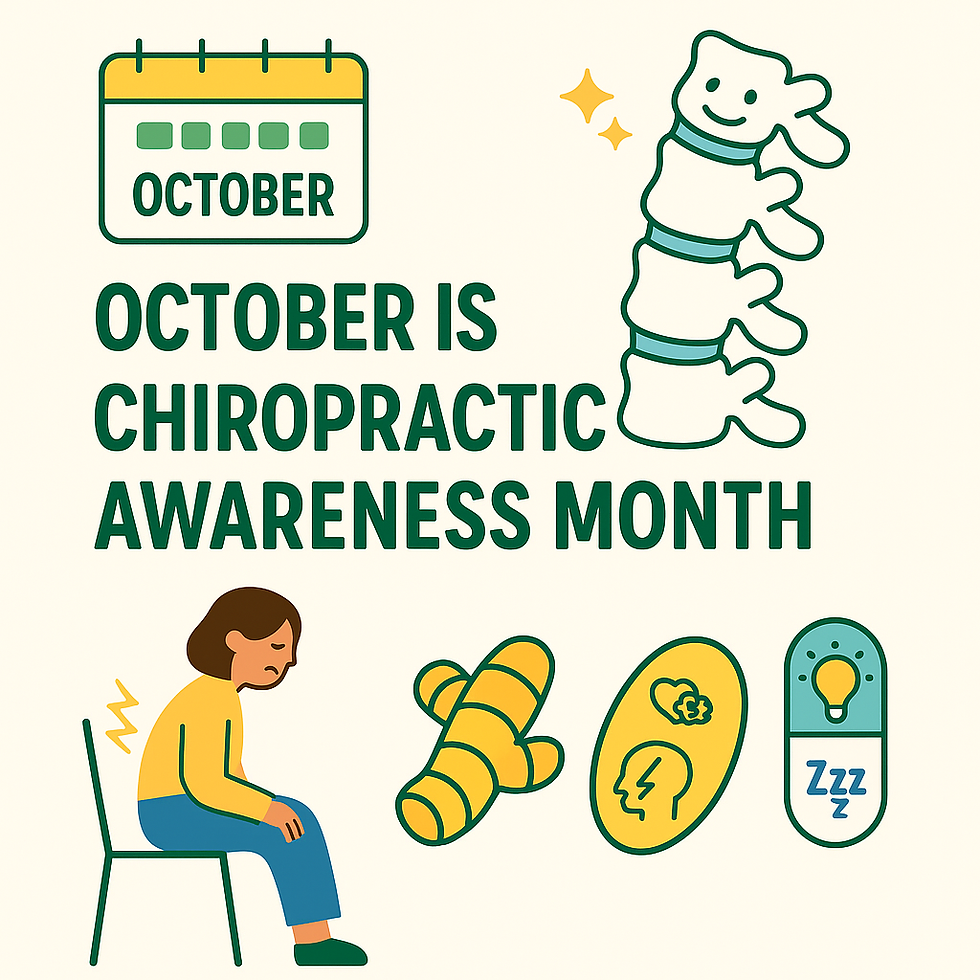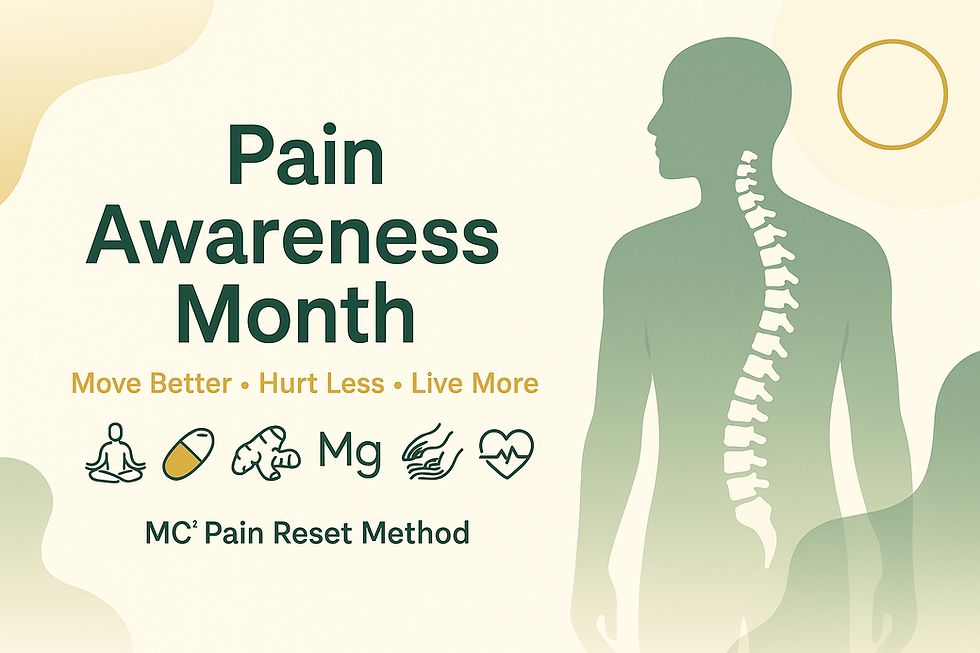How to Boost Your Immune System During Winter
- Jacob McNamara
- Jan 15
- 3 min read
Updated: Oct 7
Winter brings more than just chilly temperatures and cozy evenings by the fire—it’s also the season when viruses like the flu, coronavirus, RSV, and norovirus are more widespread. A strong immune system is your best defense, and adopting a few simple lifestyle habits can make a big difference. Here’s how to stay healthy this winter:

1. Prioritize Quality Sleep
Your body repairs and regenerates while you sleep, making it critical for a healthy immune system. Aim for 7-9 hours of quality sleep each night by creating a consistent bedtime routine, avoiding screens an hour before bed, and keeping your bedroom cool and dark. (Source: "Sleep and Immune Function," Journal of Experimental Medicine)
2. Eat a Nutrient-Rich Diet
Fuel your body with immune-boosting foods like fruits, vegetables, whole grains, and lean proteins. Focus on vitamin C-rich options like oranges, bell peppers, and strawberries, as well as zinc-rich foods such as nuts, seeds, and legumes. (Source: "Diet and Immune System," Nutrients)
3. Stay Active
Regular physical activity enhances circulation and strengthens your immune response. Aim for at least 30 minutes of moderate exercise, such as walking, yoga, or light strength training, most days of the week. (Source: "Exercise and the Regulation of Immune Functions," Frontiers in Immunology)
4. Manage Stress
Chronic stress can weaken your immune system. Incorporate stress-reducing activities into your routine, such as deep breathing, meditation, or spending time outdoors. (Source: "Stress and Immunity," Psychoneuroendocrinology)
5. Supplement Your Health
Even with the best intentions, it can be challenging to get all the nutrients you need from food alone. That’s where high-quality supplements come in:
ProbioMax® Daily DF: This daily probiotic supports a healthy gut, which plays a key role in immune function. (Source: "Gut Microbiota and Immune System," Nature Reviews Immunology)
Zinc Glycinate: Essential for maintaining a strong immune response, zinc also promotes faster wound healing and overall wellness. (Source: "Zinc in Immunity," Advances in Nutrition)
Xcellent C™: A premium vitamin C supplement that helps your immune system combat oxidative stress and stay resilient. (Source: "Vitamin C and Immune Function," Nutrients)
D3 5000: High-potency vitamin D supports immune health, bone strength, and mood regulation—especially important during the darker winter months when natural sunlight is limited. (Source: "Vitamin D and Immunity," Frontiers in Immunology)
These practitioner-grade supplements, trusted from Xymogen, provide the targeted support your body needs to thrive during cold and flu season.
6. Stay Hydrated
Drinking enough water helps flush out toxins and keeps your immune system functioning optimally. Herbal teas and warm broths are also great options during the winter. (Source: "Hydration and Health," Nutrition Reviews)
7. Wash Hands Regularly
Frequent handwashing with soap and water for at least 20 seconds is one of the most effective ways to prevent the spread of viruses. (Source: "Hand Hygiene and Viral Infections," American Journal of Infection Control)
Winter doesn’t have to mean endless sniffles and fatigue. By incorporating these simple lifestyle changes and supplementing with key nutrients, you can strengthen your immune system and enjoy the season to its fullest. Stop by our office or visit our online store to learn more about these featured supplements and how they can support your health this winter!
Works Cited
Besedovsky, L., Lange, T., & Born, J. (2012). Sleep and immune function. Journal of Experimental Medicine, 208(4), 733-738. https://doi.org/10.1084/jem.20112486
Calder, P. C., & Kew, S. (2002). The immune system: A target for functional foods? British Journal of Nutrition, 88(S1), S165-S177. https://doi.org/10.1079/BJN2002682
Campbell, J. P., & Turner, J. E. (2018). Debunking the myth of exercise-induced immune suppression: Redefining the impact of exercise on immunological health across the lifespan. Frontiers in Immunology, 9, 648. https://doi.org/10.3389/fimmu.2018.00648
Dhabhar, F. S. (2014). Effects of stress on immune function: The good, the bad, and the beautiful. Psychoneuroendocrinology, 37(1), 1-19. https://doi.org/10.1016/j.psyneuen.2011.05.014
Belkaid, Y., & Hand, T. W. (2014). Role of the microbiota in immunity and inflammation. Nature Reviews Immunology, 14(10), 660-670. https://doi.org/10.1038/nri3789
Prasad, A. S. (2008). Zinc in human health: Effect of zinc on immune cells. Molecular Medicine, 14(5-6), 353-357. https://doi.org/10.2119/2008-00033.Prasad
Carr, A. C., & Maggini, S. (2017). Vitamin C and immune function. Nutrients, 9(11), 1211. https://doi.org/10.3390/nu9111211
Aranow, C. (2011). Vitamin D and the immune system. Journal of Investigative Medicine, 59(6), 881-886. https://doi.org/10.2310/JIM.0b013e31821b8755
Popkin, B. M., D’Anci, K. E., & Rosenberg, I. H. (2010). Water, hydration, and health. Nutrition Reviews, 68(8), 439-458. https://doi.org/10.1111/j.1753-4887.2010.00304.x
Kampf, G., & Kramer, A. (2004). Epidemiologic background of hand hygiene and evaluation of the most important agents for scrubs and rubs. Clinical Microbiology Reviews, 17(4), 863-893. https://doi.org/10.1128/CMR.17.4.863-893.2004




Comments